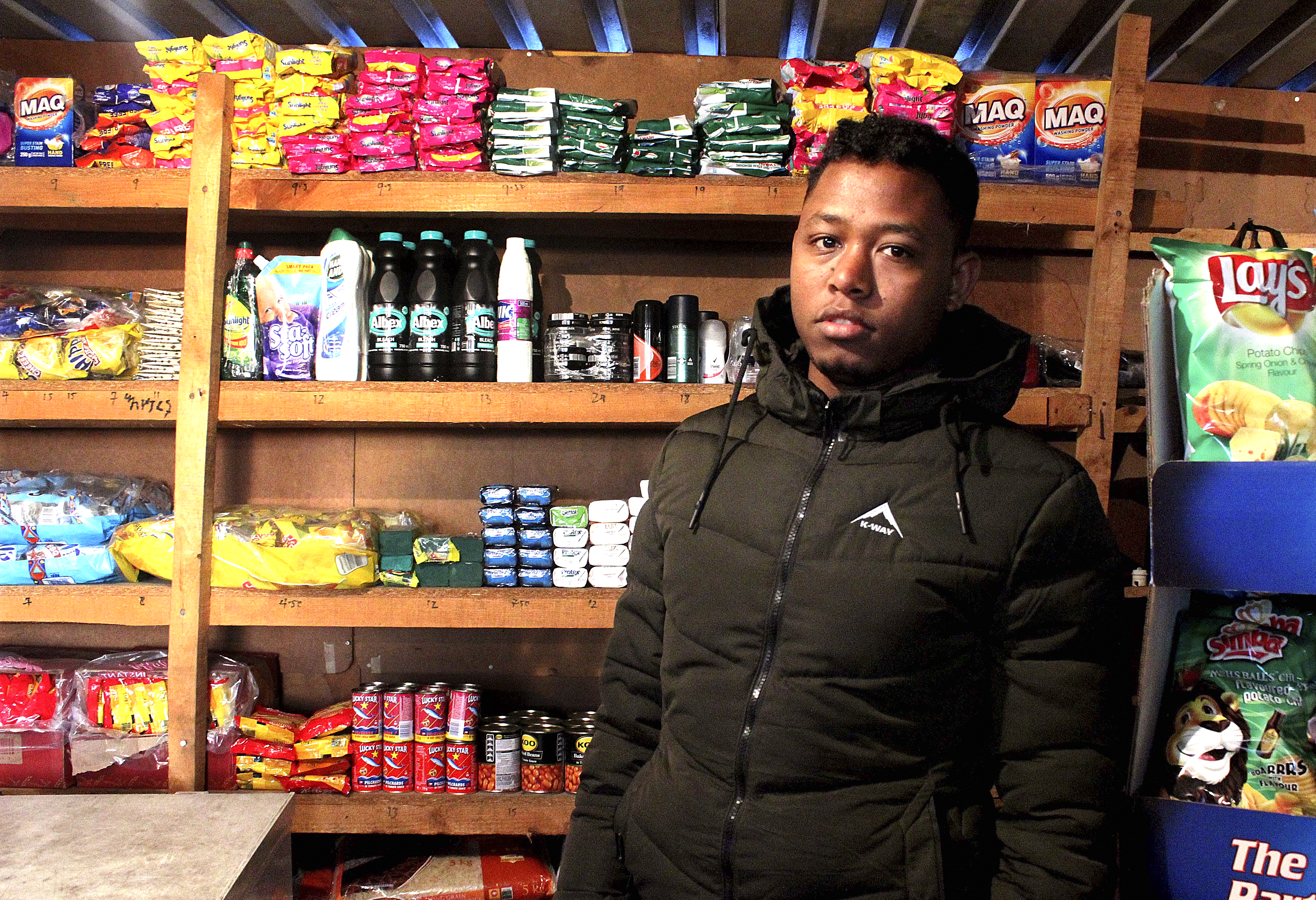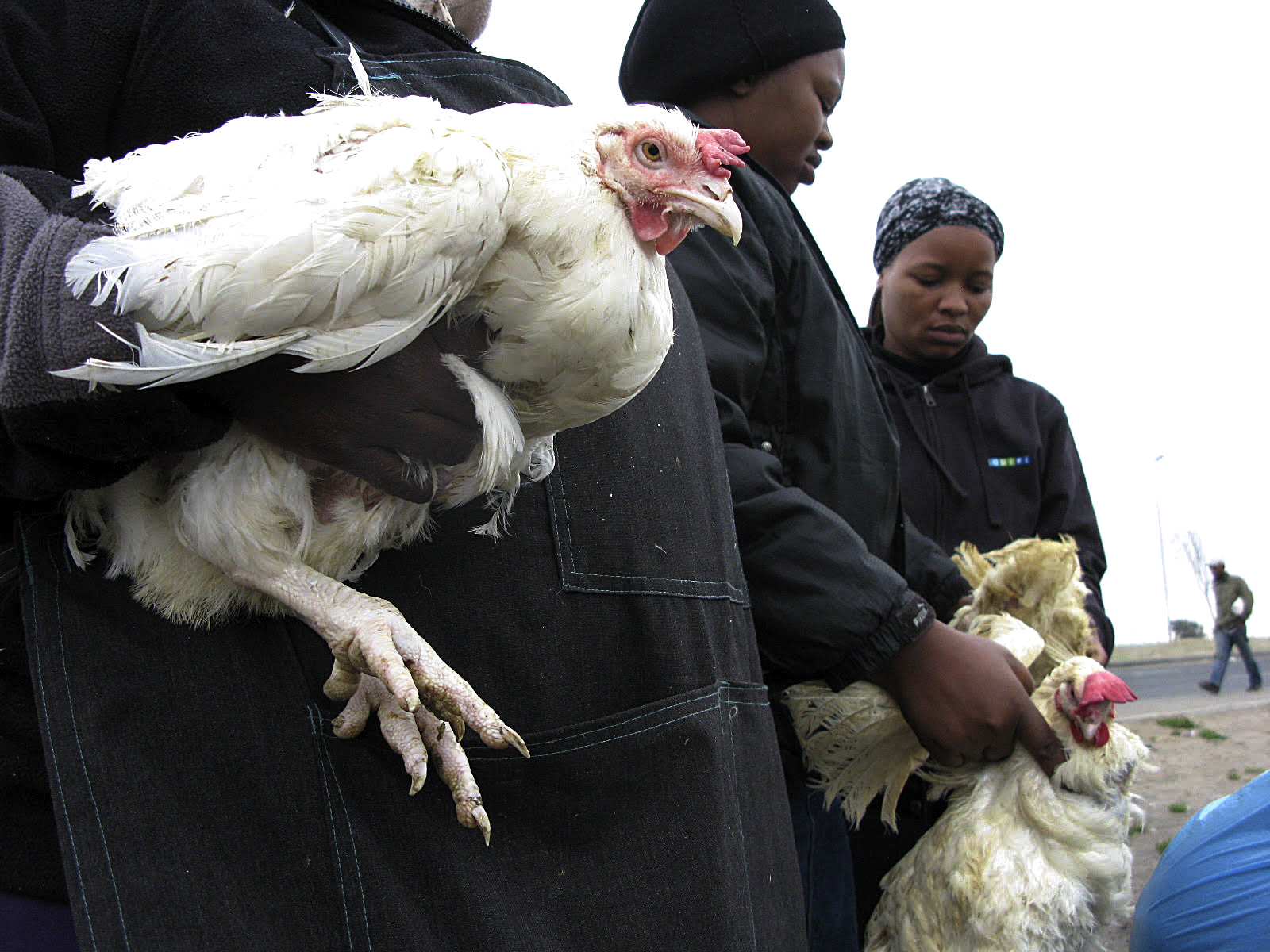OP-ED
Containment regulations must not strangle the flow of food to informal markets, researchers urge
The hungry season arrived for millions of South Africans on midnight on Thursday 26 March, when new regulations aimed at containing the spread of the coronavirus throttled back on a key source of food in poorer neighbourhoods. Emergency policies need to ensure the survival of informal food supply chains throughout the lockdown.
When you don’t have a private car, or taxis aren’t running, you need to be able to buy groceries within walking distance of your home. And with most supermarkets located in middle-class suburbs, that leaves the majority of city-living South Africans reliant on spaza shops and street traders for their food shopping.
That’s one of the key findings of years of research by urban food systems thinkers at the University of Cape Town’s African Centre for Cities, who this week urged the government to ensure that the new corona containment regulations don’t shut down the flow of food, particularly fresh produce, into informal food markets during the 21-day lockdown.
Their research into food buying trends during normal times — these are not normal times — highlights the importance of keeping informal food trading going as the country goes into a protracted Covid-19 related slowing of normal operations.
Poorer families normally do their grocery shopping at different kinds of food outlets, such as supermarkets, street-side traders, or the corner spaza shop, depending on how much money they have, explains associate professor Jane Battersby, a geographer at the African Centre for Cities. On grant payout days, or when they receive weekly wages, people may stock up on staples at supermarkets where they can benefit from cheaper prices offered by chains that can pass the benefits of their bulk-buying power.
During cash-lean times of the month or week, though — the so-called “hungry season” — informal food traders come into their own. Looking at food buying patterns in several southern and East African cities, Battersby and African Centre for Cities partner researchers have found that spaza shops and informal street-side food vendors are a significant safety net to keep food on the table outside of pay day.
“Spaza shops sell food in smaller unit sizes, which are more affordable when people are running short of cash. Fresh produce is often cheaper, even if it may be second-grade, which is just aesthetic. And many small shop owners will allow people to buy on credit, which supermarkets don’t allow,” says Battersby.
Informal traders also have longer and more flexible opening-hours, and are closer to people’s homes.

Licensed spaza shops can operate during the 21-day lockdown, even if owned by non-South Africans, but unlicensed store owners must shut their doors. (Photo: Masixole Feni)
Regulations restricting movement during the 21 day lockdown to contain the spread of the corona virus will not only impact significantly on food flowing into poorer communities — particularly fresh produce — but on whether people can access that food.
Cash-strapped families, who are immediately feeling the pressure of lower or lost wages during this lockdown, will have less money for transport during the coming weeks, and the cost of taxi fares is likely to rise as transport operators are forced to run at 50% passenger capacity.
Corner shops will come into their own as a source of groceries during this time, recognised by the fact that the regulations allow licensed spaza shops to operate, including those owned by non-South Africans. But spazas not licensed with local municipalities aren’t able to trade now, and these are also important to the availability of food in poorer communities.
A food retail mapping process in two wards in Philippi and Khayelitsha in 2013, done by the African Food Security Urban Network (AFSUN) at UCT, counted almost 500 informal food traders there. Around 40% of these were spaza shops. The same researchers found that households living in the poorest areas of Cape Town had seven times fewer supermarkets per capita than those living in the wealthiest neighbourhoods.
According to Battersby, there are no figures on the number of licensed versus unlicensed spaza shops in South African cities, but the density of these shops in poorer communities shows their importance in allowing people to feed themselves.
“There needs to be clarity on the regulations for spaza shop operations during the lockdown,” says Battersby, “and these need to be communicated clearly to the police, community leaders, and store owners.”

Street traders are another important regular source of food in townships, and can’t operate now. (Photo: Masixole Feni (Supplied by the African Centre for Cities)
The government backtracked on its initial position, that it would only allow South African-owned spaza shops to operate, but now the regulations restrict trading to stores that are licensed with a local municipality. The current regulations exclude a large number of spaza owners who aren’t licensed.
It is still unclear exactly how shop owners apply for a permit to trade during the lockdown. The main platform is through the government’s BizPortal website, but there are concerns that many shop owners may not have internet access, may not know if there are alternative ways to get a license, or that non-South Africans may not have the linguistic capacity to navigate the paperwork.
Keeping it fresh
Food is one of the first places where cash-strapped people cut corners when their budget gets tighter, usually doing away with more expensive, fresh and diverse foods, and narrowing their diet down to foods that are simpler, often more processed and less nutritious, and have a longer shelf life.

Spaza shops in lower income communities are an important source of daily food for city-living South Africans, and researchers say the regulations need to ensure the supply chain continues to bring fresh produce into these neighbourhoods. (Photo: Samantha Reinders)
The ACC’s research has found that spaza shops tend to stock packaged foods with a longer shelf life. Although many do also stock a limited range of fresh produce, usually selling vegetables and fruits with “long legs”: carrots, onions, cabbages, butternut, apples, and the like.
“We are concerned about the reduction in fresh produce flowing into townships right now. During this lockdown phase, we need to think about how we can crowd the informal food market with affordable fresh produce,” says Battersby. “Street traders are also a really important part of this system, and they can’t operate now. We need to bring them into the conversation.”
In Cape Town, the fresh produce market in Epping is one of the main clearing houses for fruit and vegetables selling into the formal market, and on 31 March was still operating under normal trading hours, according to its website. The “People’s Market”, which supplies informal food traders and runs adjacent to the formal fresh produce market, was also open for business. But many of those whose livelihoods are dependent on the next steps in the informal food supply chain can’t work now, such as the bakkie traders that distribute to street vendors, the hawkers, and those selling cooked food along the roadside.
“Our research in African cities over the years has shown that this informal food economy isn’t just necessary for bringing food into cities, but it’s an important source of employment or livelihood for many people who can then earn an income which allows them to buy that food,” said Battersby.
The containment measures to slow the spread of the coronavirus will show up the value of this often invisible food security safety net in South Africa’s cities, researchers say. DM
"Information pertaining to Covid-19, vaccines, how to control the spread of the virus and potential treatments is ever-changing. Under the South African Disaster Management Act Regulation 11(5)(c) it is prohibited to publish information through any medium with the intention to deceive people on government measures to address COVID-19. We are therefore disabling the comment section on this article in order to protect both the commenting member and ourselves from potential liability. Should you have additional information that you think we should know, please email [email protected]"





 Become an Insider
Become an Insider